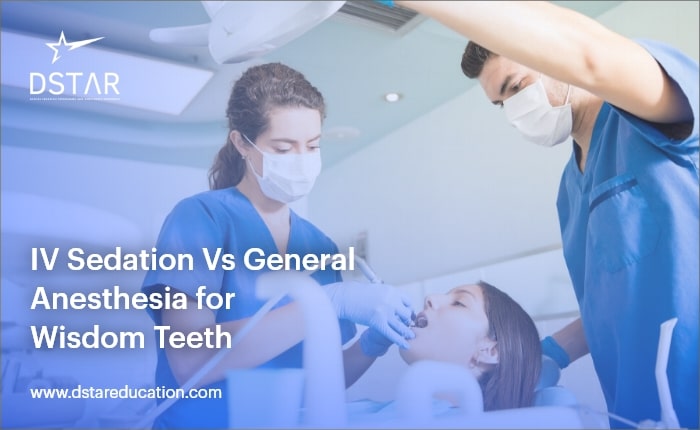The Silent Alarm in Your Dental Practice: Why BLS Certification is Non-Negotiable
Imagine this: you’re in the middle of a routine procedure when, suddenly, your patient becomes unresponsive. A cold sweat breaks out as you realize this isn’t a simple fainting spell. Do you know what to do? Your training, or lack thereof, will determine the outcome in that defining moment. This is why Basic Life Support (BLS) certification is not just a good idea for dentists – it’s a non-negotiable necessity. This post explains why every dentist should prioritize obtaining and maintaining BLS certification, emphasizing its indispensable role in patient safety and professional responsibility.
What is Basic Life Support (BLS)?
BLS includes the skills and knowledge required to manage life-threatening situations, including cardiac arrest, choking, allergic reactions, and other medical emergencies. BLS certification equips healthcare professionals, like dentists, to provide immediate, potentially life-saving assistance until advanced medical help arrives. This training prepares you to perform high-quality CPR, use an automated external defibrillator (AED), and manage obstructed airways effectively. It ensures that you can act decisively when every second counts.
Why is BLS Certification a Must for Dentists?
While dental practices primarily focus on oral health, medical emergencies can happen at any time, regardless of the setting. Patients may have underlying health conditions they don’t know about, experience unexpected reactions to medications, or suffer from sudden medical events. As a dentist, you are responsible for your patients’ well-being while they are in your care. Here’s why BLS certification matters:
Patient Safety is a Top Priority
BLS training empowers you to handle urgent situations effectively. You learn to recognize a medical emergency’s subtle yet important signs, initiate appropriate interventions based on established protocols, and potentially save a life. This training directly contributes to a safer patient environment, fostering trust and peace of mind. Imagine the potential liability and emotional toll of being unprepared for such an event.
Legal and Ethical Responsibility
Dentists must provide a reasonable standard of care, which serves as both a clear ethical and, in many jurisdictions, legal obligation. This duty includes preparing for medical emergencies in the dental setting. Earning your BLS certification demonstrates your commitment to this standard and fulfills your professional responsibilities. It proves that you and your team have taken the necessary steps to handle emergencies effectively.
Enhanced Confidence and Reduced Stress
Knowing you have the skills and training to respond effectively in an emergency notably boosts your confidence and reduces stress. This ability allows you to think clearly, act decisively, and provide the best care under pressure. When you feel prepared, your patients also experience a greater sense of security in your care.
Improved Team Preparedness and Coordination
As your practice’s primary healthcare provider, you should prepare your team for emergencies. Encourage all staff, from dental assistants to administrative personnel, to obtain BLS certification. This approach creates a well-coordinated and efficient response system, maximizing your team’s ability to handle urgent situations. Regular drills and practice scenarios further enhance team preparedness.
Professional Development and Reputation
BLS certification demonstrates your commitment to ongoing professional development and high standards of patient care. By prioritizing patient safety and sharpening your life-saving skills, you build trust within your community and strengthen your professional reputation.
What Does BLS Certification Involve?
Reputable organizations like the American Heart Association (AHA), the American Red Cross, and DSTAR Education offer BLS certification courses covering primary topics such as:
- CPR for Adults, Children, and Infants – You will practice effective chest compressions and rescue breaths, adapting your technique based on the patient’s age and size. The training includes hands-on practice and realistic scenarios.
- AED (Automated External Defibrillator) Use – The course teaches you how to operate an AED, an important device that analyzes heart rhythms and delivers electrical shocks to restore a normal heartbeat. You will learn to recognize when AED use is necessary and swiftly integrate it with CPR.
- Choking Management – You will practice various techniques for clearing obstructed airways in adults, children, and infants, including the Heimlich maneuver and back blows.
- Recognition of Medical Emergencies—The training helps you identify the signs and symptoms of various medical emergencies, including cardiac arrest, stroke, allergic reactions (anaphylaxis), seizures, and diabetic emergencies.
How to Obtain the BLS Certification?
You can earn BLS certification through organizations like the AHA and the American Red Cross. These organizations provide in-person courses, blended learning options that combine online and hands-on components, and sometimes even on-site training for dental practices. Search for BLS certification near me to find local training providers. If you’re based in Texas, DSTAR Education is a great option.
Maintaining Your BLS Certification
You must renew your BLS certification every two years to remain current with the latest guidelines, research, and best practices in emergency cardiac care. Regular renewal ensures that you remain prepared to handle medical emergencies effectively.
Don’t Delay – Prioritize BLS Certification Today!
BLS certification is not just another requirement; it is an important investment in your professional development, practice, and, most importantly, your patients’ safety and well-being. Don’t wait for an emergency to highlight the importance of this mandatory training. Take the initiative to obtain and maintain your BLS certification today. A relatively small investment of time and resources can make all the difference in an urgent situation.
Ready to take the next step in ensuring patient safety in your practice?
DSTAR Education offers comprehensive and convenient BLS certification courses for dental professionals. Invest in your team’s preparedness and gain the confidence to handle any medical emergency you may encounter. Your patients deserve it, and you’ll be glad you did. Contact us today to learn more.
Register for an upcoming course today!
References:
- American Heart Association (AHA)
- American Red Cross
- FDI World Dental Federation
- National Institutes of Health (NIH) – National Library of Medicine (PubMed Central)
 Take Free TSBDE Anesthesia Jurisprudence Practice Exam Now!
Take Free TSBDE Anesthesia Jurisprudence Practice Exam Now!












